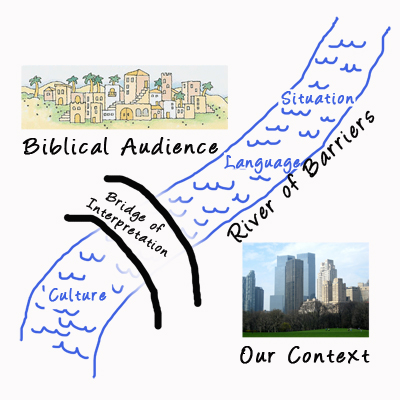Guest Post by Bible in 90 Days mentor, Laura Odom
As the cover to cover Bible in 90 Days readers are rolling into and through the minor prophets, Laura, mentor to group 17, shares some insight to help set the stage and potentially make the reading more meaningful. She’s got some great observations to share…
The first time I read through the Bible in 90 Days, it was all I could do to get through the minor prophets. Other than Jonah, which pretty much everyone is familiar with (cue VeggieTale theme song), they’re some of the lesser known and understood books. Last year, I took a Bible class on the minor prophets, and I learned a few things that I thought might be beneficial to all of us who are reading through them again.
First, let me draw you a little picture. Bear in mind, I’m no great artist! Here is something we must deal with when studying the minor prophets:
Biblical Audience
The minor prophets were written to the nations of Israel and Judah. You can do in-depth studies that will help you pinpoint closer moments in the nation’s history, but here’s the important thing… There was a covenant between God and Israel. We read it in Deuteronomy 28. Basically, it said, if you obey me and keep my commandments, you will be blessed. If not, you will be cursed and your enemies will overtake you.
Throughout the minor prophets, we see the recurring theme that Israel/Judah has broken the covenant. There is a call to repentance, and when they do not repent, judgement comes. There is oftentimes a show of hope after judgement.
River of Barriers
The river of barriers are things that keep us from understanding the minor prophets. Theirs was a different culture. The language was different. It’s also hard for us to empathize with their situation, because we are so far removed from it. We are not necessarily facing direct physical invasion or destruction.
Bridge of Interpretation
So, how do we cross the bridge, and interpret the minor prophets?
As you read, look for the theological principle of each book — the eternal truth that transcends the individual situations mentioned. For example, warnings, repentance, future glory. These ideas are ideas we can still apply to our lives today. We can still glean from these books and grasp meanings that apply to our time. We can learn how sin affects our own relationship with the Father. We can learn to beware of religious ritualism. We can learn from the mistakes of the Israelites. We learn how we should treat the poor and afflicted.
We also have the benefit of having the New Testament. We know how the story ends! You will notice as you continue to read that some of these passages will be mentioned again in the New Testament. We have the benefit of seeing the whole picture and passages that help clarify the Old Testament and add to our understanding.
I hope that this way of reading will help you as we go forward through the minor prophets. I also thought I’d include a brief list of themes for each of the minor prophets. Maybe it will help you focus as you read through.
- Obadiah – The Fall of Edom Joel – The Day of the Lord, Locust and Pentecost
- Jonah – The Mercy of a Sovereign God
- Amos – The Lion has roared and Israel is judged
- Hosea – God’s wife Israel spurns his love
- Nahum – Fall of Nineveh; Poetic justice
- Micah – Walk with mercy, justice & humility
- Zephaniah – The Day of the Lord revisited
- Habakkuk – From fear to faith
- Haggai – Build the Temple!
- Zechariah – Not by might but by my Spirit
- Malachi – Remember the Law and wait for Elijah
May God bless each of you as you continue to read through His Word.
~ Laura Odom
Laura is a Christian wife, mother, daughter, photographer, amateur chef, homeschooler, pretend gardener, cancer-survivor and laundry-hater. She co-authors a blog which can be found at TrainsandTutus.com.




Leave a Reply